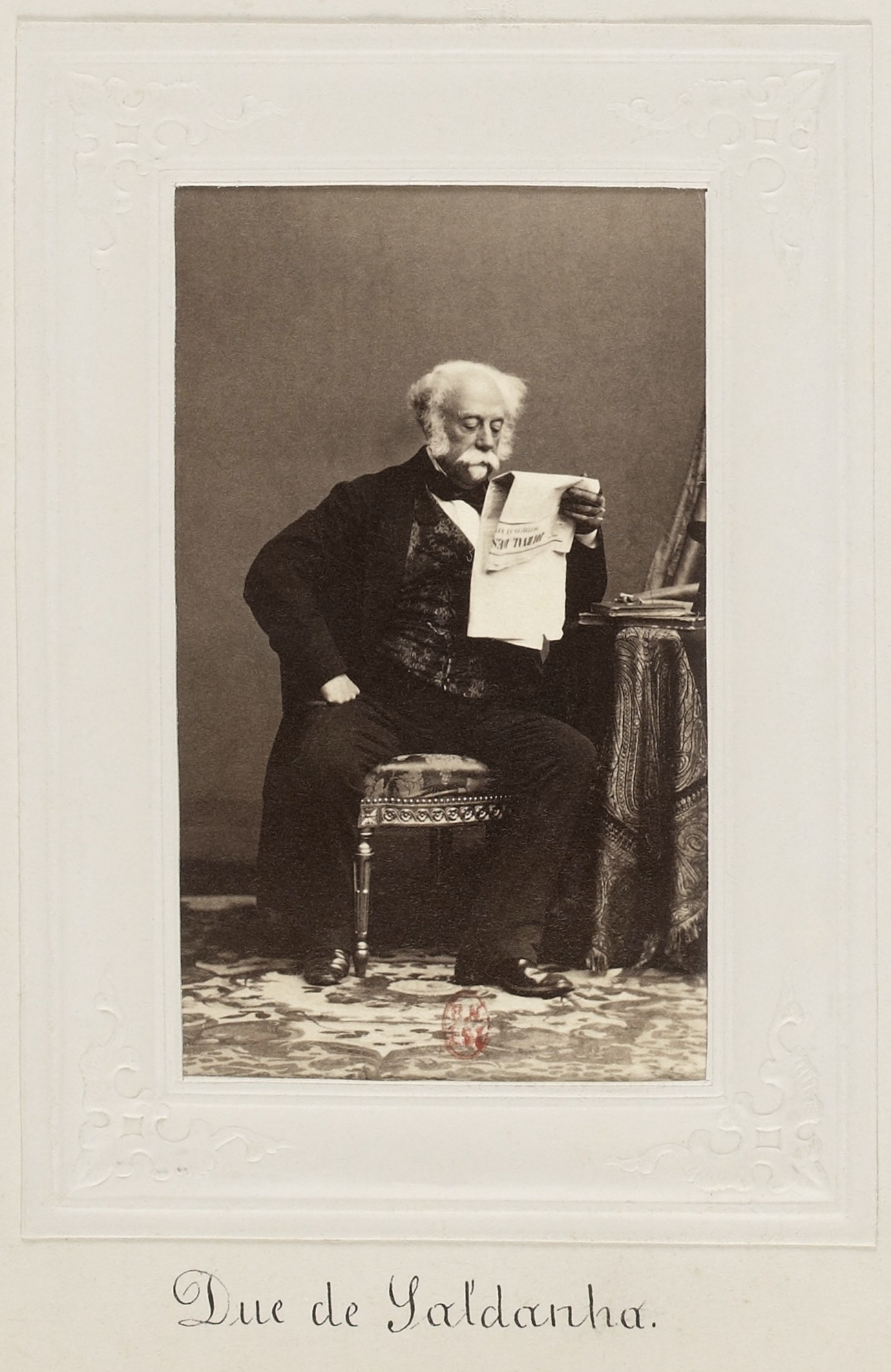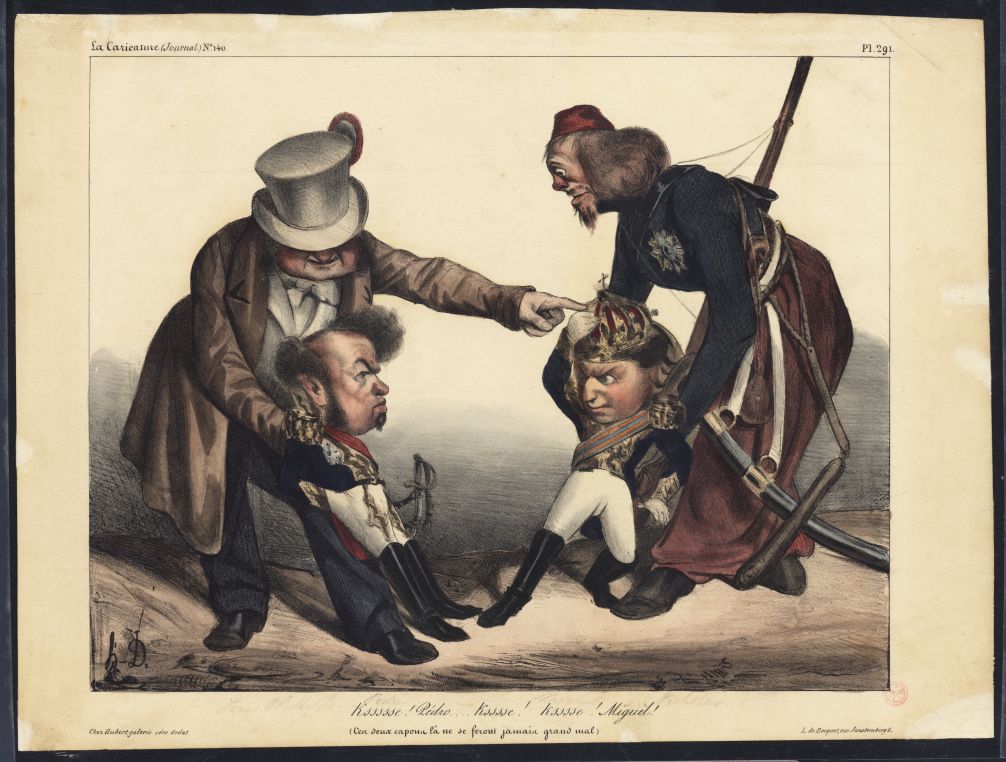|
Academic Battalion
An academic battalion ( pt, batalhão académico) is a type of military unit formed by university students and teachers, in the scope of the histories of Portugal and Brazil. The first of such units was formed in 1808, within the University of Coimbra, to fight the French invaders, during the Peninsular War. This original academic battalion would inspire the creation of latter similar units, both in Portugal and in Brazil. List of historical academic battalions # Academic Battalion of the University of Coimbra (known as the "Academic Battalion of 1808") – formed in 1808 with teachers and professors of the University of Coimbra. It participated in several military operations of the Peninsular War; # Academic Volunteers Battalion – formed in 1826 in Coimbra, to support the Liberal forces that were fighting the absolutists; # Academic Battalion (known as the "Academic Battalion of 1828") – formed in Coimbra in 1828, in the scope of the Liberal Wars (1828–1834). It fough ... [...More Info...] [...Related Items...] OR: [Wikipedia] [Google] [Baidu] |
Military History Of Brazil
The military history of Brazil comprises centuries of armed actions in the territory encompassing modern Brazil, and the role of the Brazilian Armed Forces in conflicts and peacekeeping worldwide. For several hundreds of years, the area was the site of intertribal wars of indigenous peoples. Beginning in the 16th century, the arrival of Portuguese explorers led to conflicts with the aboriginal peoples; a notable example being the revolt of the Tamoio Confederation. Sporadic revolts of African slaves also marked the colonial period, with a notable rebellion led by Zumbi dos Palmares. Conflicts were encountered with other European nations as well – two notable examples being the France Antarctique affair, and a conflict with the Netherlands in the early 17th century over control of much of the Northeast. Although Portugal retained its possessions during conflicts with other nations, it lost control of the colony after the Brazilian war of Independence, which led to the es ... [...More Info...] [...Related Items...] OR: [Wikipedia] [Google] [Baidu] |
Military History Of Portugal
The military history of Portugal is as long as the history of the country, from before the emergence of the independent Portuguese state. Before Portugal Before the emergence of Portugal, between the 9th and the 12th centuries, its territory was part of important military conflicts – these were mainly the result of three processes. Roman expansion * The conflict between Ancient Rome and Carthage for the dominion of the western Mediterranean sea mainly occurred in Iberia (the Roman Hispania) during the Second Punic War from 218 to 201 BC. * The Roman conquest of Hispania, a long process from 218 BC (in the context of the Second Punic War) to 17 BC (already during Emperor Augustus), had three major confrontations regarding modern Portuguese territory: ** The Lusitanian War from 155 to 139 BC, between the Romans and the Lusitanians, namely during the period these were led by Viriatus. ** The expedition and conquest of Gallaecia (north of Portugal and Galicia), from 135 and 132 ... [...More Info...] [...Related Items...] OR: [Wikipedia] [Google] [Baidu] |
Monarchy Of The North
The Monarchy of the North ( pt, Monarquia do Norte), officially the Kingdom of Portugal (), was a short-lived counter-revolution against the First Portuguese Republic and a monarchist government that occurred in Northern Portugal in early 1919. It was based in Porto and lasted from 19 January to 13 February 1919. The movement is also known by the derogatory term Traulitânia (). The movement was led by Henrique Mitchell de Paiva Couceiro, a prominent member of the Portuguese imperial government, without any sanction from the deposed King of Portugal, Manuel II. Paiva Couceiro, who had led and participated in many previous attempts at restoring the Portuguese monarchy, stated that the revolution was necessary because "if the North does not agree with the South, I will be, until the end, on the side of the faithful to tradition". The revolution's inability to gain strong popular support throughout the country, coupled with its unorganized structure, led to its quick demise and t ... [...More Info...] [...Related Items...] OR: [Wikipedia] [Google] [Baidu] |
Revolta Da Armada
The Brazilian Naval Revolts, or the Revoltas da Armada (in Portuguese), were armed mutinies promoted mainly by admirals Custódio José de Melo and Saldanha da Gama and their fleet of rebel Brazilian navy ships against the claimed unconstitutional staying in power of president Floriano Peixoto. First revolt In November 1891, President Marshal Deodoro da Fonseca, amid a political crisis compounded by the effects of an economic crisis, in flagrant violation of the new constitution, decided to "solve" the political crisis by ordering the closure of Congress, supported mainly by Paulista oligarchy. The Navy, still resentful of the circumstances and outcomes of the coup that had put an end to the monarchy in Brazil, under the leadership of admiral Custódio José de Melo, rose up and threatened to bombard the city of Rio de Janeiro, then the capital of Brazil. To avoid a civil war, marshal Deodoro resigned the presidency in 23 November. With the resignation of Deodoro, afte ... [...More Info...] [...Related Items...] OR: [Wikipedia] [Google] [Baidu] |
Paraguayan War
The Paraguayan War, also known as the War of the Triple Alliance, was a South American war that lasted from 1864 to 1870. It was fought between Paraguay and the Triple Alliance of Argentina, the Empire of Brazil, and Uruguay. It was the deadliest and bloodiest inter-state war in Latin American history. Paraguay sustained large casualties, but the approximate numbers are disputed. Paraguay was forced to cede disputed territory to Argentina and Brazil. The war began in late 1864, as a result of a conflict between Paraguay and Brazil caused by the Uruguayan War. Argentina and Uruguay entered the war against Paraguay in 1865, and it then became known as the "War of the Triple Alliance". After Paraguay was defeated in conventional warfare, it conducted a drawn-out guerrilla resistance, a strategy that resulted in the further destruction of the Paraguayan military and the civilian population. Much of the civilian population lost their lives due to battle, hunger, and disease. The gue ... [...More Info...] [...Related Items...] OR: [Wikipedia] [Google] [Baidu] |
João Carlos De Saldanha Oliveira E Daun, 1st Duke Of Saldanha
João Carlos Gregório Domingos Vicente Francisco de Saldanha Oliveira e Daun, 1st Duke of Saldanha, (17 November 1790 – 20 November 1876; ) was a Portuguese marshal and statesman. Early life and schooling Saldanha was born on 17 November 1790, in Azinhaga. He was a grandson of Sebastião José de Carvalho e Melo, 1st Marquis of Pombal, the Secretary of the State of the Kingdom of Portugal and the Algarves to King Joseph I of Portugal. Saldanha studied at Coimbra, served against the French, and was made a prisoner in 1810. On his release he went to Brazil, where he was employed in the military and diplomatic services. He returned to Portugal after the declaration of the independence of Brazil. Liberal Wars The Duke of Saldanha, as he is commonly known, was one of the most dominating personalities of war and politics in Portugal, from the revolution of 1820 to his death in 1876. During that period he led no less than seven coups d'état. He played an important part ... [...More Info...] [...Related Items...] OR: [Wikipedia] [Google] [Baidu] |
Cartista
Cartista was a Portuguese form of Chartism which arose after the Portuguese Liberal Revolution of 1820. Members supported the Constitutional Charter of 1826 granted by Peter IV of Portugal, which was an attempt to reduce the conflicts created by the revolution. This was a less radical charter than the Constitution of 1822. Portuguese chartism was quite different from both European and British chartism, and was in some ways antithetical, as they believed in a liberal-conservative ideology. A scathing contemporary description defined them as either personal enemies of Don Miguel, or were simply acting out of self-interest. By 1851, the chartists successfully carried out a military coup against Cabral. The party became part of a power-sharing agreement with Partido Progressista, which became the basis of the system of "rotativism", where they took turns ruling Portugal Background Following the Peninsular War, when the monarchy had remained transplanted in Brazil and continental Po ... [...More Info...] [...Related Items...] OR: [Wikipedia] [Google] [Baidu] |
Patuleia
The Patuleia, Guerra da Patuleia, or Little Civil War was a civil war in Portugal, so called to distinguish it from the 'great' civil war between Dom Pedro and Dom Miguel that ended in 1834. The Patuleia occurred after the Revolution of Maria da Fonte, and was closely associated with her. It was caused by the nomination, as a result of the palace coup of 6 October 1846, known as the " Emboscada", to set up a clearly Cartista government presided over by marshal João Oliveira e Daun, Duque de Saldanha. The war lasted 8 months, pitting the Cartistas (with the support of queen Maria II) against an unnatural coalition of Septembrists and Miguelists. The focus of resistance to the new government was the Septembrist 'Junta of Porto', whose military leader, the First Count of Bonfim, was defeated by Marshal Saldanha at the siege of Torres Vedras on 22–23 December 1846, and sent into exile in Angola. The war ended in a clear Cartista victory, as shown in the signing of the res ... [...More Info...] [...Related Items...] OR: [Wikipedia] [Google] [Baidu] |
Military Unit
Military organization or military organisation is the structuring of the armed forces of a State (polity), state so as to offer such military capability as a military policy, national defense policy may require. In some countries paramilitary forces are included in a nation's armed forces, though not considered military. Armed forces that are not a part of military or paramilitary organizations, such as Insurgency, insurgent forces, often mimic military organizations, or use ''ad hoc'' structures, while formal military organization tends to use hierarchical forms. History The use of formalized Military rank, ranks in a hierarchical structure came into widespread use with the Roman Army. In modern times, executive control, management and administration of military organization is typically undertaken by governments through a Ministry (government department), government department within the structure of public administration, often known as a Ministry of defence, ministry ... [...More Info...] [...Related Items...] OR: [Wikipedia] [Google] [Baidu] |
Miguelites
In the history of Portugal, a Miguelist (in Portuguese ''Miguelista'') was a supporter of the legitimacy of the king Miguel I of Portugal. The name is also given to those who supported absolutism as form of government, in opposition to the liberals who intended the establishment of a constitutional regime in Portugal. Miguel was regent for his niece Queen Maria II of Portugal, and potential royal consort. However, he claimed the Portuguese throne in his own right on the grounds that the "Fundamental Laws of the Kingdom" deprived his elder brother Pedro IV of his right to reign (and of any right of Pedro's daughter to inherit the kingdom from her father) when Pedro became sovereign of the former Portuguese colony of Brazil and launched war on Portugal to oust Miguel as a usurper. This overall led to a political crisis, during which many people were killed, imprisoned, persecuted or sent into exile, culminating in the Portuguese Liberal Wars between authoritarian Absolutists (led ... [...More Info...] [...Related Items...] OR: [Wikipedia] [Google] [Baidu] |





